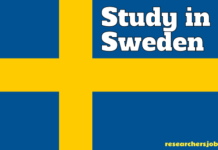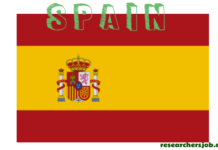10+ PhD Studentships: The University of Liverpool is offering over 10 fully-funded PhD studentships in Digital Materials Chemistry. These studentships aim to address the global demand for researchers with expertise in materials chemistry, digital intelligence, and automation. Successful candidates will have the opportunity to contribute to cutting-edge research in materials design, discovery, and processing, leveraging advancements in artificial intelligence, robotics, and quantum computing. The training program, based at the Materials Innovation Factory, focuses on interdisciplinary collaboration between physical, engineering, and computer sciences, providing a unique opportunity for transformative impact in both research and development.
PhD Studentships in Digital Materials Chemistry
- 🌐 The global demand for researchers in materials chemistry, digital intelligence, and automation is rising due to challenges posed by Net Zero.
- 🌟 The University of Liverpool offers studentships for October 2024, focusing on robotic, digital, chemical, and physical thinking in materials research.
- 🤖 The research projects are cross-disciplinary, co-supervised by 3 scientists, incorporating digital and materials chemistry elements.
- 🎓 Eligibility: Primarily for UK students, full tuition fees, and maintenance grant provided for 4 years.
- 📅 Application deadline: March 17, 2024.
- 🛠 Development of bespoke algorithms for autonomous optimization in flow
- Focus on optimizing material production conditions using flow chemistry.
- Comparison of design-of-experiments with self-optimizing methods for organic materials.
- Algorithms development for cost, yield, and sustainability optimization.
- 🧬 Explaining structure-property relations in the materials space
- Aims to explain materials properties through geometric invariants of crystal structures.
- Maps properties in materials space using structural invariants.
- Predicts new materials by optimizing existing structures.
- 🤖 Deploying safer robot chemists in real laboratory environments
- Addresses safety in robot/human lab environments.
- Develops methods for safer robotic chemists.
- Validates the system in high-throughput crystallization experiments.
- 🔧 Non-Metal Organic Frameworks for proton and ion conduction
- Explores novel porous materials for energy technologies.
- Uses robots to accelerate exploration of chemical space.
- Requires a background in chemistry, with programming or automation skills as an advantage.
- 🔍 Digital discovery of new photocatalysts for photoredox catalysis
- Utilizes high-throughput virtual screening for discovering organic photocatalysts.
- Validates photocatalytic activity using electrochemical techniques and robotic platforms.
- Aims to develop sustainable alternative photocatalysts for pharmaceutical drug development.
- 🤖 Automated experimental functional materials discovery for net zero technologies
- Develops a robot-based workflow for accelerating materials discovery.
- Integrates physical science progress in automated synthesis and computer science progress in data analysis.
- Impacts inorganic materials discovery for net zero transition technologies.
- 🖥 Accelerating computational materials discovery with diverse toolsets for verification and optimization
- Addresses the grand challenge of discovering materials for net zero transition.
- Develops decision-making and reasoning for an automated robot-based workflow.
- Bridges physical science and computer science to redefine materials discovery processes.
- 💻 Accelerating energy landscape exploration through optimization, approximation, and parallelization
- Focuses on heuristic methods for energy landscape exploration in Crystal Structure Prediction (CSP).
- Aims to improve the performance guarantee of heuristic methods and design new unbiased search methods.
- Incorporates algorithmic approaches and parallel algorithms for efficient exploration.
- 🔬 High-throughput first-principle simulations of charge transport in organic semiconductors
- Applies first-principle quantum simulation methods to study charge transport in organic semiconductors.
- Aims to identify high-mobility compounds within digital structural databases.
- Cross-disciplinary project with intersections in high-energy physics.
Designation: PhD Research Scholar
Research Area: Digital Materials Chemistry
Location: University of Liverpool, Materials Innovation Factory (MIF)
Eligibility/Qualification:
- Primarily available to UK students (applications from international students will be considered).
- Full tuition fees and a maintenance grant for 4 years (£18,622 pa in 2024).
| Key Details | Values |
|---|---|
| Number of Studentships | 10+ |
| Funding Duration | 4 years |
| Tuition Fees | Fully covered for UK students |
| Maintenance Grant | £18,622 pa in 2024 |
| Application Deadline | 17-March-2024 |
Job Description:
- Conduct cutting-edge research in Digital Materials Chemistry.
- Develop core expertise in robotic, digital, chemical, and physical thinking.
- Collaborate with a diverse team of researchers in an inclusive R&D environment.
- Participate in interdisciplinary projects supervised by experts from academia and/or industry.
- Leverage digital elements such as robotics, automation, or computational material development.
- Engage in materials chemistry elements, including synthesis or advanced characterization methods.
How to Apply:
- Complete the online postgraduate research application form here.
- Ensure applications are submitted no later than 17-March-2024.
Last Date for Apply: 17-March-2024
Disclaimer: This job post is sourced from a reliable channel. Applicants are advised to verify details and application procedures from the official website of the University of Liverpool for the most accurate and up-to-date information.








